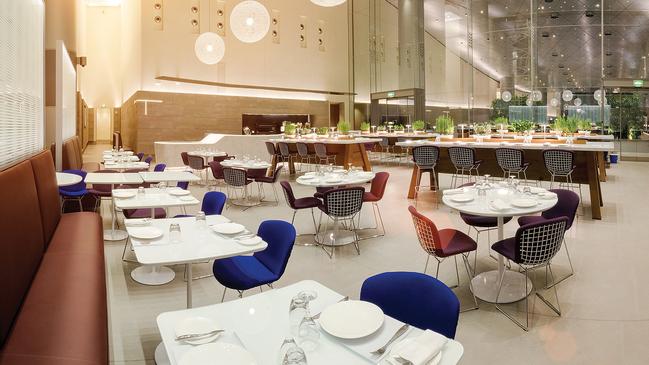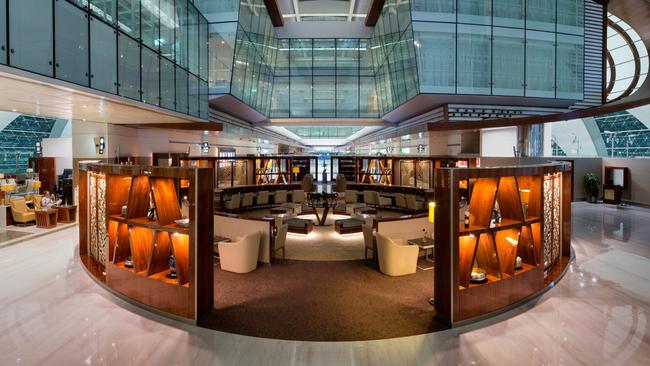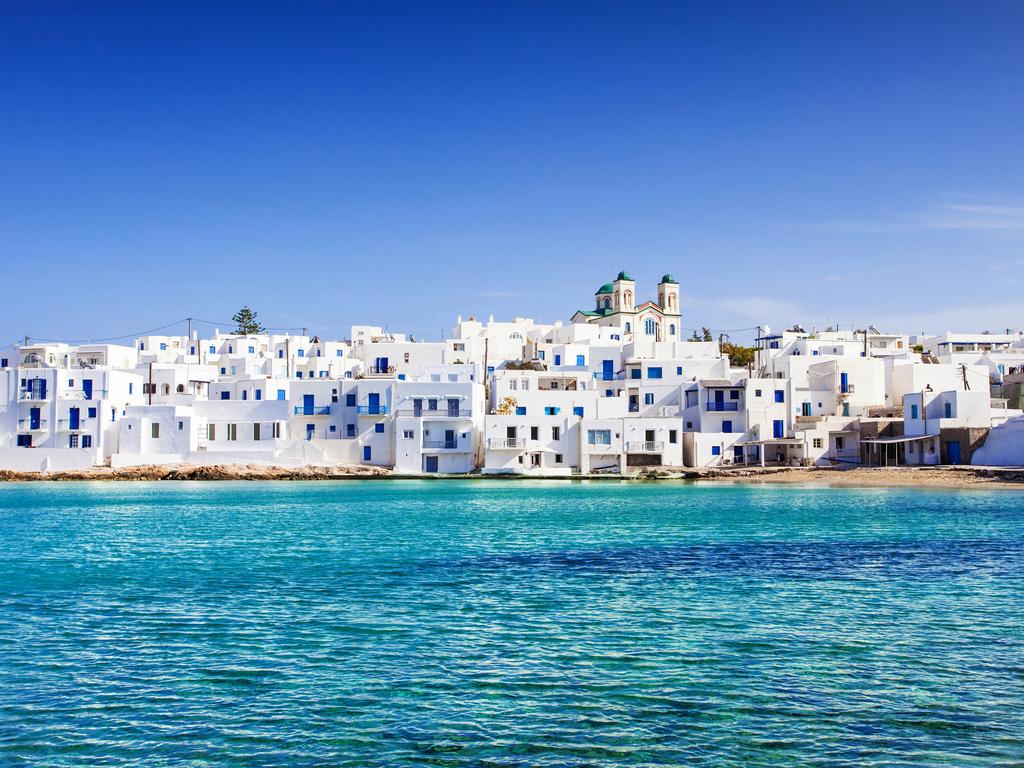‘Unbundled’ business class travel takes off in Europe but Qantas says ‘no thanks’
So-called ‘unbundled’ business class airfares are tipped as one of the major travel trends of 2024 but Qantas says it’s not interested in going down that path yet.

Qantas has ruled out following partner airline Emirates into the area of “unbundled business class fares” next year, by offering cheaper prices to customers willing to forgo premium travel benefits such as lounge access and fare flexibility.
Predicted by tech company Amadeus to be one of the big travel trends of 2024, unbundled business class fares were first offered by Emirates as long ago as 2019, and a number of other carriers followed suit this year.
Also called “business lite”, “business sale” or “business restricted”, the lower fares offer the same in-flight cabin service, but passengers may not get to select a seat, enter the lounge, or have the option of upgrading to first class.
The unbundled fares come with fewer loyalty points and status credits, and may incur extra fees in the event flight changes are necessary.
In the case of Emirates, “special” business class fare travellers don’t get a chauffeur-driven car to the airport, or to their hotel at their destination.
The upside for customers is the financial saving, which can run into the thousands of dollars.
Emirates Australasia vice president Barry Brown said the specific fare brand was in “high demand for price sensitive customers” who wanted the onboard experience while saving on their airfares by omitting the other elements.
“However, we see appetite varying by demographic and length of journey, among other factors,” said Mr Brown.
In the case of Qatar Airways, the difference between its four categories of business class fares ranged from about $600 to $3000 on a return trip from Sydney to London.
According to its website, Qatar Airways said the additional options were designed to offer “greater choice to passengers”.
“Each fare family offers passengers a clear, distinct set of products and services designed to meet the specific needs of its broad customer base,” said the airline’s website.
Other airlines to restructure their premium fare products include Air France, KLM and Finnair.

Emirates revealed its “special” business fares were in high demand across its network and therefore scooped up quickly, especially in peak periods such as December-January.
Despite the popularity of the fares, a Qantas spokeswoman said it was not something the Australian airline was contemplating for 2024, and would continue to offer a full suite of benefits to business class passengers.
However, Qantas did offer business “saver” fares on some routes, which came with fewer points and status credits, and less fare flexibility than business flex fares.
As with other carriers the price difference was significant, and there was a potential saving of $5000 on a Sydney-London return fare.
Australian Travel Industry Association chief executive Dean Long said the business “lite” or restricted fares were not yet commonplace, but did have the potential to trip up travellers.
“I think people who book those without the support of an agent, there’s a high potential they’re going to get that wrong if they’re not paying close attention to the fare conditions,” Mr Long said.
“It’ll be interesting to see what complaints start to flow through.”
Previously a feature of low-cost carriers, “unbundled fares” typically meant the separation of various fare components to give customers the option of paying extra for check-in luggage, food and beverage, seat selection and in-flight entertainment.
Mr Long said the majority of business class travellers associated the experience with having access to a lounge and things like priority check-in and boarding.
“If that’s removed from it, that’s something this market hasn’t seen before and what impact that has on those sales will be interesting,” Mr Long said.
“It is good we’re getting some innovation in that product so people who wish to fly lying flat and are happy to utilise other lounge accesses they may have through their credit cards.
“But we’re just not quite sure where the market will land.”
His expectation was that airlines with large business class cabins on their aircraft would be most likely to embrace the trend, particularly if they were looking to manage their lounge capacity while maintaining yield.
“It will come down to what people prioritise – a shower and lounge access during a three-hour stopover versus 15 hours in a lie-flat bed,” he said.
Mr Brown said Emirates was working on more innovative products for customers who “increasingly want choice”.
“Our fare unbundling strategy is one way we serve them a more personalised approach,” he said.
“We’re working hard to introduce more extras and exciting options for our customers, with more value-added products and services on the horizon, so watch this space.”






To join the conversation, please log in. Don't have an account? Register
Join the conversation, you are commenting as Logout